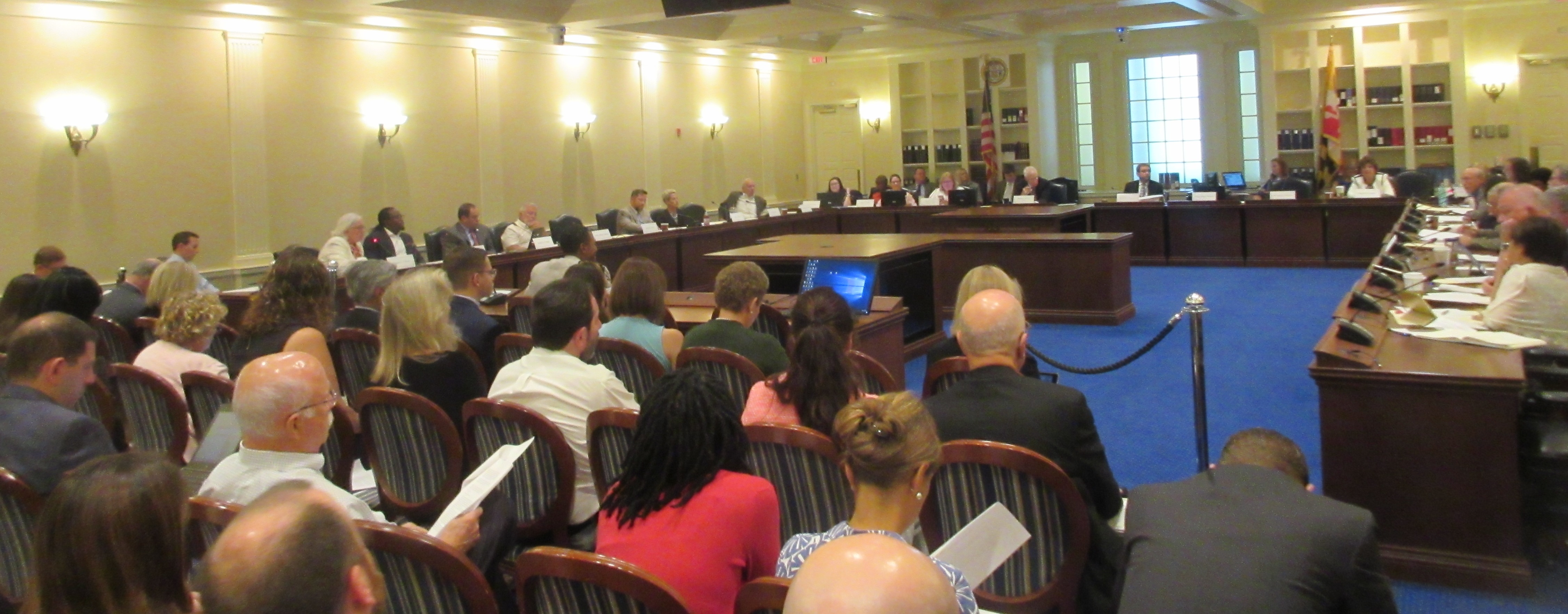@BryanRenbaum
Episode 5 of the “Free State Politics” podcast presented MarylandReporter.com is now available to download.
It features award-winning journalist John Rydell and producer Douglas Christian, an independent White House multimedia journalist. If you have not subscribed to the podcast, please do so.
The 24-minute episode features interviews with Maryland Office of the Public Defender Decarceration Initiative Director Brian Saccenti, Baltimore County State’s Attorney Scott Shellenberger, and Chesapeake Bay Foundation Maryland Fisheries Scientist Allison Colden.
Saccenti and Shellenberger offer contrasting views on a proposed rule change to the Maryland Judiciary that would allow for thousands of inmates to be released from prison earlier than expected. Colden discusses the decline in the state’s Blue Crab population and what that says about the overall health of the Chesapeake Bay ecosystem.
Saccenti explains proposed rule change
“The proposed rule change really is aimed at two groups of people,” he said. “The first are people who have reached age 60 and have been incarcerated for at least 15 years. The second group are people who were under the age of 25 at the time of the crimes for which they are serving their sentence. And they too will have had to have served a substantial period of time before they are eligible to have their sentences looked at again.”
Saccenti says he supports the proposed rule change
“This lets judges after a lot of time has passed to look at how that individual has changed what they have done since they were sentenced. And we found in our experience, and the research bears this out-that very often when people are incarcerated for a substantial period of time they really do turn their lives around.”
Shellenberger says he strongly disagrees with the proposed rule change
“It ends the concept of finality for victims and victims’ families,” he said. “Right now, the rule has been the same for a very long period of time…in which after 5 years from your sentence a judge could not change your sentence again. The case was over. And my prosectors and I could look at victims’ families and say: ‘Look, the next thing that is going to happen is that there might be a parole hearing. But that is going to be decades from now.’ What this rule change does is it takes away that finality.”
Shellenberger says violent felons might get released early
“We are talking about the worst of the worst. We are talking about First Degree Murder, First Degree Rape. Those are the kinds of cases that we are talking about. And now, suddenly more than 15 years after getting sentenced, I have to send a letter to the victim and say: ‘Come back to court. He wants to get out. And a judge has to give him a hearing.'”
Colden points to data from recent state study showing Blue Crab population decline
“There was actually an increase this year in the number of adult female crabs, which was the good news,” she said. “But the bad news was the large decline that we saw in the number of juvenile Blue Crabs this year. It was actually the lowest number of juveniles recorded since the survey began in the early 1990s.”
Colden says environmental problems have affected the Blue Crab population
“The Blue Crab has a very complex life history. It starts in the lower Bay. And as those crabs travel up the Bay and mature and spawn they will come back down to the mouth of the Bay to release those eggs and larvae, which then travel offshore into the Atlantic Ocean. And those larvae have to make their way back into the Chesapeake Bay. And then they encounter all of issues that we see in the Chesapeake Bay. That complex life history leads to a lot of variation in the number of juvenile Blue Crabs that we see from year to year and has a lot of environmental factors that are driving it.”
Finale
The podcast concludes with Rydell’s signature two-minute societal self-reflection: “A Moment of Clarity.”
This week the host discusses the ongoing debate and legal challenges related to the state’s ban on video cameras in courtrooms during criminal proceedings.






Recent Comments